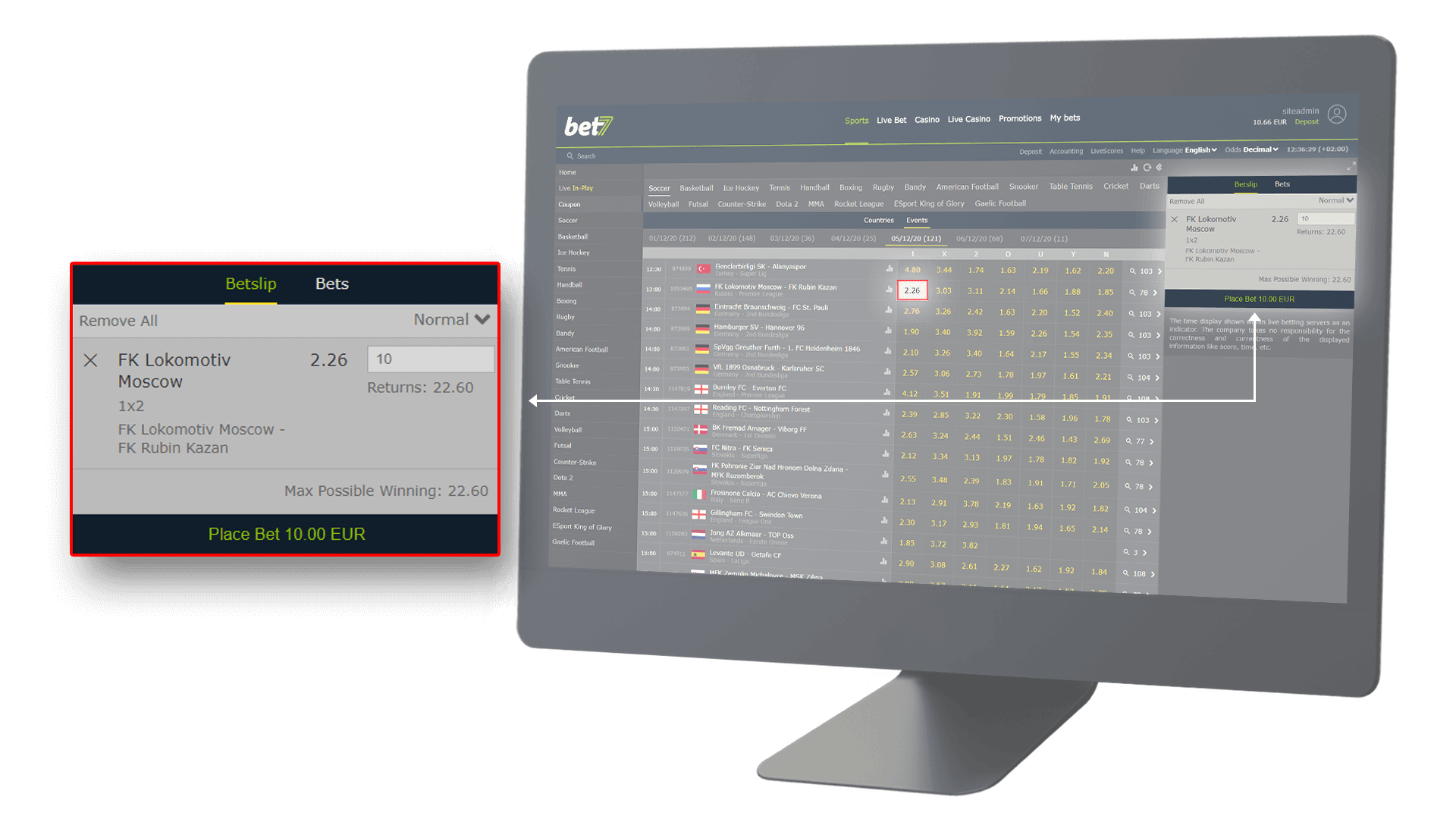The payout ratio is simply a way to figure out what percentage of the company’s earnings are being paid out in the form of dividends. People concerned about the safety of their dividend income. Whether it’s the Kentucky Derby or green 2-year-old thoroughbreds battling out the first race of their careers, the rules for wagering and payoffs are the same for all American races. Make your sports betting experience easier with our bonus bet calculator, calculate how to maximise the profit from your bonus bet! Live betting lets you wager while the game is going on, for instance to bet on who will score next. However, parlays (more than one bet on a ticket) have a separate betting calculator for more. The Trifecta or Tricast is a wager laid in horse racing meant to pick the first, second, and third in the exact order they’ve finished the race. The Trifecta is one of the most popular exotic wager.
- How To Calculate Horse Bet Winnings
- How To Calculate Sports Betting Payouts
- How To Calculate A Bet Payout Results

It is difficult to believe but, there are plenty of people around who have little idea exactly what a bet is or what is meant whenever I mention being interested in betting or the fact that I run a Web site about online football betting.
Obviously in England most people have come across betting at some stage in their lives and high street bookmakers’ shops have been around in their multitudes for decades. However, most of my family lives in Germany and belongs to the innocent or ignorant section of society which has little notion.
I recently spent hours trying to explain to my Father what a bet is. Also, the fact that one can bet on various outcomes in the same football match was a new and slightly confusing concept to many of my family members.
Therefore, today’s article sets out exactly what is meant by the terms “bet”, “betting”, “odds”, “stake”, “bookmaker” and “mathematical advantage”.

Betting on the example of a coin toss
Imagine tossing a coin: there are two possible outcomes, either it will land showing the ‘head’ or the ‘tail’ facing up. The separate ‘likelihood’ (or ‘probability’) of both results is exactly 50/50. In other words, after 100 throws, in theory the result should show 50 ‘heads’ and 50 ‘tails’.
Now we will apply the concept of betting to these results: one person believes the next coin toss will be ‘heads’, whilst the other believes the outcome will be ‘tails’ and both parties agree to wager (bet) money on their guesses. In betting terminology, the money risked by both parties in this transaction is called the ‘stake’ and for this example the stake shall be one Euro. This means each party bets one Euro on their chosen result to win.

The coin is tossed: if ‘heads’ lands face-up then the party who guessed/wagered on ‘heads’ wins and vice versa if it lands ‘tails’. The player who guessed correctly keeps his stake AND wins the stake of the other person; the opponent loses his stake (in this example one Euro).
If this game is played, say 100 times, and both parties stick religiously to their selections (i.e. each betting 100 times always on the same result), then after 100 coin tosses, according to theoretical probability, both should be neither the richer nor the poorer than at the beginning. As seen, for one player there should theoretically be 50 times ‘heads’ meaning 50 wins of one Euro, cancelled out exactly by the coin landing 50 times ‘tails’. Of course, this situation is also parity for the other player.

However, perhaps the game doesn’t pan out according to the theoretical rules? Maybe the perception is that ‘heads’ lands face-up more often than ‘tails’? The game now evolves and receives an ‘edge’ if one party is no longer willing to pay out one Euro should ‘heads’ win but reaches an agreement with the other to pay say, 90 Cents instead. This means that in future if ‘heads’ wins he will now only earn 90 Cents each time but, if ‘tails’ wins, then his opponent wins the bet and with it the whole of ‘heads’ one Euro stake.
This change now guarantees a loss on one side and a profit to the other, over the longer term: If one bets 100 times ‘heads’ and as expected, the coin lands 50 times ‘heads’ then 45 Euros will be won (50 x 90 Cents = 45 €); however when ‘tails’ lands 50 times then 50 Euros will be lost (50 x 1 € = 50 €). In this way, whoever puts their selves in the position of mathematical disadvantage in a gambling transaction will for sure lose money in the long run. In our example, after 100 bets, the player of ‘heads’ will have lost five Euros. The winner of this transaction received one Euro every time the coin landed ‘tails’ and only paid out 90 Cents when the coin landed in favour of their opponent, ‘heads’.

How To Calculate Horse Bet Winnings
learn to think like a bookmaker!Do You Know our Bestsellers?
They Are Helping Thousands Betters World Wide!
How To Calculate Sports Betting Payouts
True Odds &
Value Detector:
League Games
with H2H History